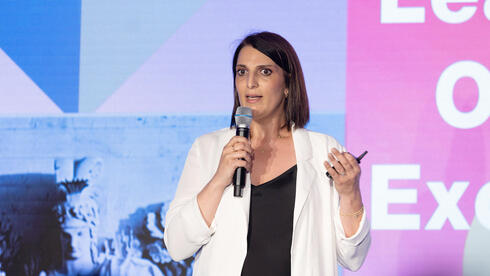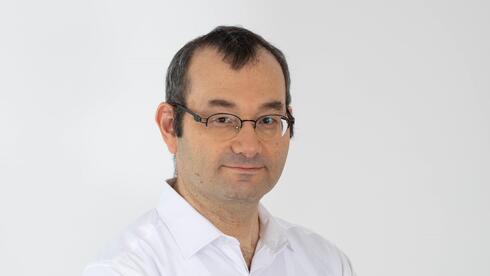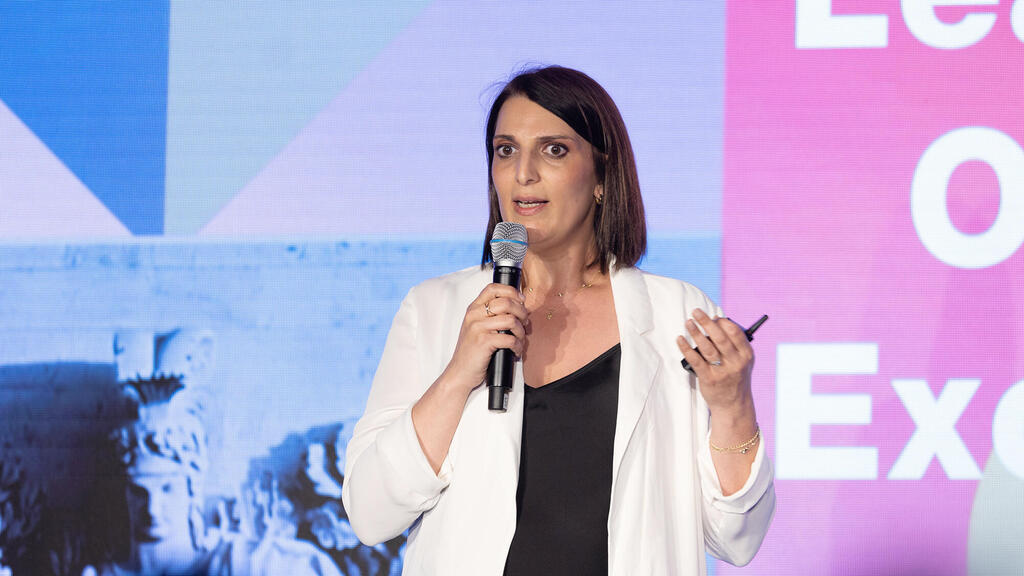
Paris 2024
"Wearable devices allow doctors to better diagnose patients"
Dr. Shirit Kazum-Beiser, Head of the Sports Cardiology Clinic at Beilinson Hospital, was speaking at the closing event of Calcalist and Bank Hapoalim's business delegation to Paris
"Cardiology is entering a new era," is how Dr. Shirit Kazum-Beiser, Head of the Sports Cardiology Clinic at Beilinson Hospital, opened her lecture at the closing event of Israel’s Business Delegation to Paris led by Calcalist and Bank Hapoalim. "Innovation has brought us a treasure trove of vital information, which allows us as doctors to better diagnose our patients. But before we use this information, we need to understand how to properly manage it, and even before that, understand how we protect patients' privacy and use their data.
"Thanks to technology, the dream of using it to treat athletes is coming true. Many people today wear smart technology accessories, such as smartwatches. They have become part of our lives and consistently collect endless information from millions of people all over the world. We cardiologists can use this information to advance research and development and even to save lives," she explained.
Kazum-Beiser gave an example of the technological revolution through the case of one of her patients: "A 45-year-old patient, a software engineer married with children, who around the age of 30 decided to start a hobby of mountain biking. Over the years, it became an essential part of his life. I followed him in our sports clinic as part of routine until a few months ago when he called me to say that during a routine workout, at the peak of activity, he felt increased heartbeats and that he was on the verge of fainting.
"I knew all his data two weeks before were good, but I didn't know if this event he experienced was putting his life at risk and if I should stop his training. Luckily, I asked him if he was wearing his smartwatch. Not only was he wearing it, but he also knew how to tell me that he has a record of the event on the watch itself. He sent me the data that showed that the event was not life-threatening. I gave him treatment and permission to return to activity without going through all the complex tests that are usually required," she said.
"Most of us like to do sports. More and more people do sports to stay healthy, and the gap between professional athletes and amateurs is blurring. There is an error in the perception that athletes do not have medical problems. Some of them forgo medical tests, and they do not know that they are prone to experiencing cardiac events. This is where wearable devices come in. For you, it's a device that tells you how far you've walked and whether you need to move after you've been sitting for a long period of time. For us cardiologists, it's an innovative and revolutionary tool that allows us to track your vital signs, without you even knowing it," Kazum-Beiser added.
Despite the advantages that wearable equipment brings, according to Kazum-Beiser, there are still obstacles on the way to optimal use of it: "We have a new challenge. We have to understand how to read all this enormous information and extract from it only the information that is important to us. This is not something that can be done by human means. For this, an AI tool needs to be developed. We need to establish a legal system that will protect this information and answer questions such as who owns this information - the user or the person who made the device? Who has access to this information? And how can it be protected? It's part of what we have to deal with. But despite these obstacles, this trend is happening and it will help save lives."















